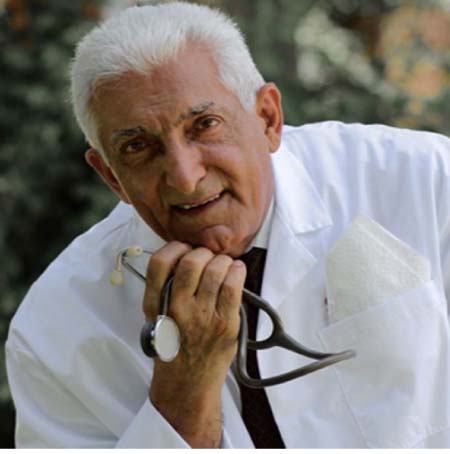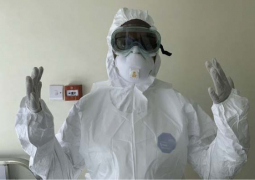
Why Is Smoking Bad for You
Smoking is responsible for several diseases, such as cancer, long-term (chronic) respiratory diseases, and heart, as well as premature death. Over 480,000 people in the USA and 100,000 in the UK die because of smoking each year, Gambia no exception at all.
Smoking is the largest cause of preventable death in the world. Recent studies have found that smokers can undermine the health of non-smokers in some environments.
Smoking causes cancer
Lung cancer is one of the most common causes of cancer deaths in the world. According to the American Lung Association, 90% of male lung cancer patients develop their disease because of smoking. In addition, male smokers are 23 times more likely to develop lung cancer than those who have never smoked. Female smokers are 13 times more likely to develop lung cancer than those who have never smoked.2
In addition to lung cancer, smokers also have a significantly higher risk of developing:
Smoking contributes to 80% of lung cancer deaths in women and 90% of lung cancer deaths in men (American Lung Association).
•Bladder cancer
•Kidney cancer
•Cancers of the pharynx and larynx (throat cancer)
•Mouth cancer
•Oesophagus cancer
•Cancer of the pancreas
•Stomach cancer
•Some types of leukaemia
•Cancer of the nose and sinuses
•Cervical cancer
•Bowel cancer
•Ovarian cancer
•In some cases, also breast cancer
According to Cancer Research UK, one person dies every 15 minutes in Great Britain from lung cancer.
Smoking also raises the risk of cancer recurrences (the cancer coming back).
Why does smoking raise cancer risk
Scientists say there are over 4,000 compounds in cigarette smoke. A sizeable number of them are toxic - they are bad for us and damage our cells. Some of them cause cancer - they are carcinogenic.
Tobacco smoke consists mainly of:
•Nicotine - this is not carcinogenic. However, it is highly addictive. Smokers find it very hard to quit because they are hooked on the nicotine. Nicotine is an extremely fast-acting drug. It reaches the brain within 15 seconds of being inhaled. If cigarettes and other tobacco products had no nicotine, the number of people who smoke every day would drop drastically. Without nicotine, the tobacco industry would collapse.
Nicotine is used as a highly controlled insecticide. Exposure to sufficient amounts can lead to vomiting, seizures, depression of the CNS (central nervous system), and growth retardation. It can also undermine a foetus’ proper development.
•Carbon Monoxide - this is a poisonous gas. It has no smell or taste. The body finds it hard to differentiate carbon monoxide from oxygen and absorbs it into the bloodstream. Faulty boilers emit dangerous carbon monoxide, as do car exhausts.
If there is enough carbon monoxide around you and you inhale it, you can go into a coma and die. Carbon monoxide decreases muscle and heart function, it causes fatigue, weakness, and dizziness. It is especially toxic for babies still in the womb, infants and individuals with heart or lung disease.
•Tar - consists of several cancer-causing chemicals. When a smoker inhales cigarette smoke, 70% of the tar remains in the lungs. Try the handkerchief test. Fill the mouth with smoke, don’t inhale, and blow the smoke through the handkerchief. There will be a sticky, brown stain on the cloth. Do this again, but this time inhale and the blow the smoke through the cloth, there will only be a very faint light brown stain.
We have published another article containing a longer list of harmful chemicals found in cigarette smoke and how they can harm you.
Smoking and heart/cardiovascular disease
Smoking causes an accumulation of fatty substances in the arteries, known as atherosclerosis, the main contributor to smoking-related deaths. Smoking is also a significant contributory factor incoronary heart disease risk. People with coronary heart disease are much more likely to have a heart attack.
Tobacco smoke raises the risk of coronary heart disease by itself. When combined with other risk factors, such as hypertension (high blood pressure), obesity, physical inactivity, or diabetes, the risk of serious, chronic illness and death is huge.
Smoking also worsens heart disease risk factors. It raises blood pressure, makes it harder to do exercise, makes the blood clot more easily than it should. People who have undergone bypass surgery and smoke have a higher risk of recurrent coronary heart disease.
According to the American Heart Association:
“Cigarette smoking is the most important risk factor for young men and women. It produces a greater relative risk in persons under age 50 than in those over 50.”
A female smoker who is also on the contraceptive pill has a considerably higher risk of developing coronary heart disease and stroke compared to women using oral contraceptives who don’t smoke.
If you smoke your levels of HDL, also known as good cholesterol will drop.
If you have a history of heart disease and smoke, your risk of having such a disease yourself is extremely high.
A much higher percentage of regular smokers have strokes compared to other non-smokers of the same age. The cerebrovascular system is damaged when we inhale smoke regularly.
Those who smoke run a higher risk of developing aortic aneurysm and arterial disease.
Recent developments on smoking from MNT news
Smoking during pregnancy may lower your child’s reading scores
Research has suggested that babies born to mothers who smoke more than a pack of cigarettes a day while pregnant have lower reading scores and a harder time with reading tests, compared with children whose mothers do not smoke.
Smoking causes half of all deaths from 12 cancers, estimate shows
Researchers estimating the number of deaths from 12 smoking-related cancers have found that 48.5% of the 346,000 deaths in the US in 2011 were attributable to cigarettes.
A meta-analysis published in the journal Lancet Psychiatry reports that people who smoke are more than three times more likely to suffer from psychosis, compared with non-smokers.
Tooth decay risk doubles in children exposed to second-hand smoke
Exposure to second-hand smoke at 4 months of age is associated with an increased risk of tooth decay at age 3 years, concludes a study published in The BMJ.
Who is most likely to become addicted
Anyone who starts smoking can become addicted to nicotine. Studies show that cigarette smoking is most likely to become a habit during the teen years. The younger a person is when he or she begins to smoke, the more likely he or she is to become addicted to nicotine. Almost 90% of adult smokers first smoked at or before age 19.
The nicotine in cigarette smoke can cause addiction. Nicotine is an addictive drug just like heroin and cocaine:
Nicotine reaches the brain within seconds after taking a puff, but its effects start to wear off within a few minutes. This is what most often leads the smoker to get another cigarette. If the smoker doesn’t smoke again soon, withdrawal symptoms kick in and get worse over time
The typical smoker takes about 10 puffs from each cigarette. A person smoking a pack per day gets about 200 “hits” of nicotine each day.
When taken in small amounts, nicotine creates pleasant feelings that make the smoker want to smoke more. It acts on the chemistry of the brain and central nervous system, affecting the smoker’s mood. Nicotine works very much like other addicting drugs, by flooding the brain’s reward circuits with dopamine (a chemical messenger). Nicotine also gives you a little bit of an adrenaline rush -- not enough to notice, but enough to speed up your heart and raise your blood pressure.
For further information and advice for now you can send text only to Dr Azadeh on 7774469 /3774469, between 4-6 pm working daysand THE FRANCIS DEGAULLE NJIE FOUNDATION (FDNF) www.fdnf.gm 3626581/9917149.
Author DR AZADEH Senior Lecturer at the University of the Gambia, Senior Physician, Senior Consultant in Obstetrics & Gynaecology, Clinical Director of Medicare Health Services.
EndFragment



